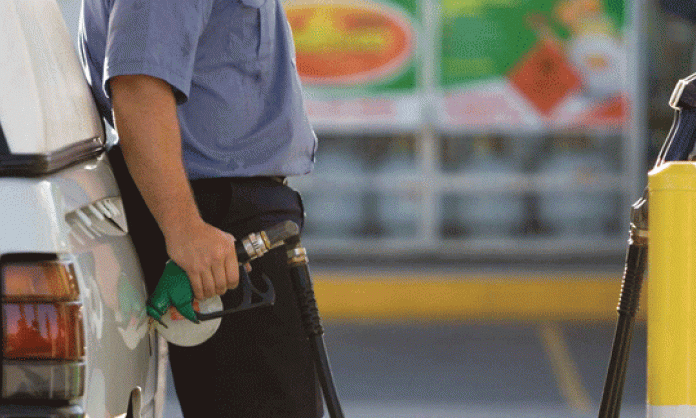The Abbott government’s proposal to reintroduce indexation of the fuel excise has proven to be a thorny issue for the Greens.
The fuel excise is a tax that makes up a significant chunk of the price we pay for petrol. Indexation was first introduced in 1983 by the federal Labor government, which legislated that the excise would rise twice yearly in line with inflation. However, in 2001 the excise was frozen at 38.1 cents per litre by a then unpopular Howard government desperate to shore up support in the lead-up to the so-called “Tampa election”.
From the Liberals’ perspective, this decision has always been an example of populism trumping “good policy”. Had the excise not been frozen, the government would currently be receiving an additional $5.5 billion in revenue per year.
Restoring indexation lines up perfectly with their broader agenda of shifting the overall taxation burden away from big business. The fuel excise is an example of the kind of “regressive” tax that places a disproportionate burden on the poorest sections of society, maintaining government revenue without impinging on big business profits. The GST, which the government seems equally keen to increase, is another.
One only need consider that, as shown in a Grattan Institute analysis from November 2013, the poorest 20 per cent of households spend on average 6 per cent of their income on petrol, while the richest 20 per cent spend only around 2 per cent. So much, then, for Joe Hockey’s infamously ham-fisted attempt to justify indexation on the basis that “poor people don’t drive”.
In refusing to back indexation, both Labor and the Greens have, of course, been keen to emphasise the regressive nature of the tax. The Greens have also highlighted the fact that under the Liberals’ proposal, increased revenue from the excise will be used to fund the construction of new roads, contributing to further increases in traffic and rising carbon emissions in the long term.
So far so good; but for the Greens at least the issue is rather more difficult than it might at first appear.
Taxes on major sources of greenhouse gas emissions like fuel are exactly the kind of measures that the mainstream environment movement has long advocated as a means of tackling climate change – a perspective shared, ostensibly, by the Greens themselves. In 2006 the Greens even went so far as listing the abolition of fuel excise indexation as number one on their list of the “top ten budget mistakes made by John Howard”.
However, in June the Greens did an about-turn on their previous position, prompting widespread consternation among environmentalists.
Thus Ben Eltham, writing in New Matilda: “If the Greens really believe in curbing fossil fuel production – hell, if they even believe in the value of price signals as instruments of environmental policy – then supporting an increase in the fuel excise is the right thing to do.”
More recently Richard Denniss, previously a senior advisor to former Greens leader Bob Brown and now executive director of the Australia Institute, wrote in the Canberra Times that the decision to oppose indexation was a “breathtaking act of political obstructionism” attributable only to a blind opposition to everything the Liberals do.
Never mind that such taxes inevitably hit workers and the poor the hardest – these are the sacrifices we have to make for “greater good” of sustainability. To oppose them can only be, from this perspective, a case of dirty-dealing for short-term political gain.
The whole thing makes for a rather curious spectacle, with the supposedly “progressive” environmentalists siding with the Liberals in advocating a thoroughly neoliberal and pro-business agenda. With this kind of politics at its core, is it any wonder that the mainstream environment movement has had such a hard time convincing workers to get on board?
To follow Eltham’s and Denniss’s logic is once again to let the big polluters off the hook at the expense of ordinary people. The possibility of funding a shift to renewable energy and improved public transport by cutting into the super-profits enjoyed, for example, by the big banks and miners, is ruled out in advance as counter to neoliberal “common sense”. The competiveness of industry must be protected at all cost!
The Greens’ opposition to the indexation of the petrol excise is a step in the right direction, but will anything come of it? Unfortunately, given the lack of the kind of movement that could pose a challenge to the logic of the market, it seems unlikely.
A commitment to sustainability that doesn’t place the cost of change on the back of workers and the poor is possible, but as Naomi Klein has powerfully argued in her most recent book This changes everything: capitalism vs the climate, it involves tackling the power of corporations and the rich head-on. And this, it seems, is a step too far for the leading lights of the environment movement today.
The Liberals have, by pushing indexation through as a regulatory measure rather than as legislation, kicked the can one year down the road. At that point the debate will come up in parliament again, with the Greens facing all the same pressures, from their own supporters as much as anyone else, to reverse their stance.









